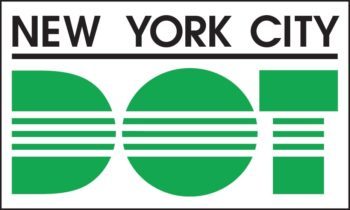
Image Credit: New York City Department of Transportation
On August 19, 2024, New York City Department of Transportation Commissioner Ydanis Rodriguez announced that applications for the Off-Hour Delivery (OHD) Incentive Program have opened. This program provides New York City businesses who make or receive commercial deliveries during the congested times of the day a one-time incentive reimbursement on qualifying deliveries during off-hour deliveries to reduce traffic congestion during the day.
The program will provide a one-time reimbursement for eligible OHD-enabling expenses including: access enhancements (ex. smart access systems), security equipment (ex. camera systems), low-noise cargo handling equipment (e.g. pallet jacks and track retrofits), green delivery methods (ex. cargo bikes). The application for the program is open until September 30, 2024 at 11:59 p.m.
Applicants who participate in this program must provide their anticipated off-hour delivery-related expenses for reimbursement and commit to conducting off-hour deliveries for a minimum of one year. This program will incentivize businesses to make deliveries between 7 PM. and 6 AM, reducing excessive truck traffic during peak daytime hours reducing traffic congestion, carbon emissions, and greater safety risks for pedestrians. Roughly 90 percent of goods are moved through New York City by truck, having commercial deliveries conducted in the evening and overnight hours will reduce daytime traffic and shipping costs. The Off-Hour Delivery program includes businesses across the five boroughs that receive large amounts of goods, like Just Salad, ABI (Anheuser Busch-Inbev), Wegmans, Odeko, and Whole Foods Market.
While the program will be open to businesses of all sizes, it specifically focuses on helping smaller businesses endure financial barriers to transitioning to off-hour deliveries. The New York City Department of Transportation will also encourage participants to consider sustainable last-mile delivery options, such as electric vehicles and cargo bikes. Eligibility requirements for the program can be found here: https://ohdnyc.com/incentiveprogram. The incentive program is managed, developed, administered, and monitored by Arcadis.
The Off-Hour Deliveries incentive program is part of the City’s Department of Transportation effort to reimagine freight delivery in New York City, restructure freight distribution, and create a sustainable last-mile delivery system for getting goods where they need to go safely and efficiently. This $6 million program has been funded through the United States Department of Transportation’s Congestion Mitigation and Air Quality (CMAQ) program, which provides funds to States for transportation projects designed to reduce traffic congestion and improve air quality.
Since 2010, the Off-Hour Deliveries program has been used to provide technical assistance to freight receivers and shippers to help them shift deliveries to off-peak hours. To date, the agency has enrolled 27 businesses with close to 1,120 locations receiving off-hour deliveries.
The New York City Department of Transportation plans to reach 5,000 Off-Hour Delivery locations by 2040, shifting an estimated 62,000 trucks away from peak hours.
Meera Joshi, Deputy Mayor for Operations said, “Truck deliveries in the densest parts of NYC during rush hour push the patience of professional truck drivers, hurt their bottom line and contribute to the gridlock which burdens us all. Help is on the way! Smart access technology and last mile delivery equipment is available for free for business owners who want to switch their deliveries to off hours, saving time and money for those making them and providing a huge step towards bringing the ‘rush’ back to rush hour.”
New York City Department of Transportation Commissioner Ydanis Rodriguez said, “Decreasing congestion, improving our air quality, and reducing the number of large trucks on our roads are vital to making New York City greener, healthier, and more livable. We encourage all local businesses to apply for this program that will benefit all New Yorkers by reducing the number of delivery trucks on our roads during busy daytime hours.”
By: Chelsea Ramjeawan (Chelsea is the CityLaw intern and a New York Law School student, Class of 2025.)

